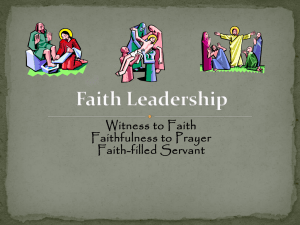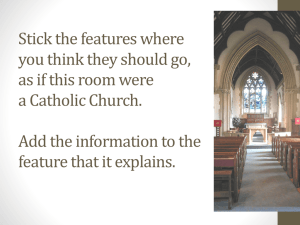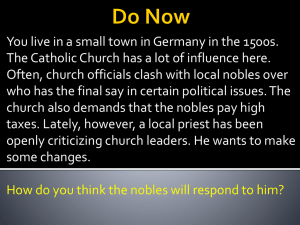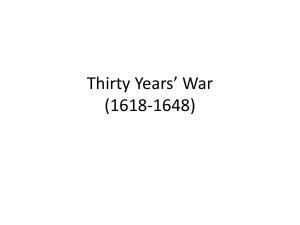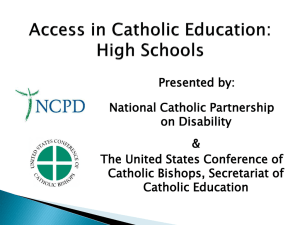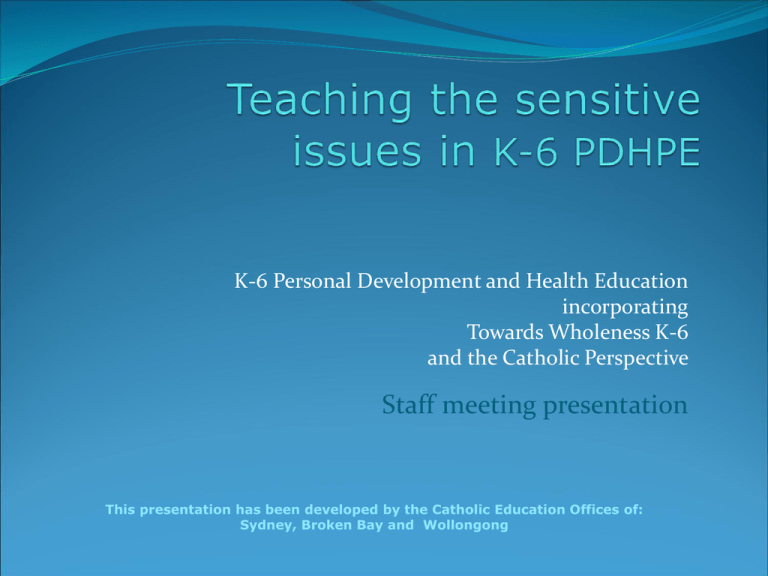
K-6 Personal Development and Health Education
incorporating
Towards Wholeness K-6
and the Catholic Perspective
Staff meeting presentation
This presentation has been developed by the Catholic Education Offices of:
Sydney, Broken Bay and Wollongong
Overview
PDHPE in a Catholic School
Implementing Towards Wholeness K-6
Creating a learning environment for teaching sensitive
issues
Available resources for teaching sensitive issues
K- 6 PDHPE Syllabus
Board of Studies NSW
PDHPE is one of
seven key learning areas in the
NSW primary curriculum. It is concerned with
the development of the whole person and the
improvement of human life.
As a Catholic Educational sector we are
mandated to teach to the integrity of this
syllabus with flexibility to the school and its
underpinning ethos.
The Challenge for Catholic Educators…..
Teachers in Catholic Schools have a responsibility to their
students to:
present the Church’s teachings
acknowledge contemporary society and student
experiences
encourage a reflective and informed decision making
process
the expectation of the Church and parents is that sexual
health information and moral principles should be
integrated
parents want Catholic morals instilled in their children
Catholic Schools at a Crossroads
Ensure that our schools:
“The Catholic school
system is one of the
“jewels in the crown”
of the Catholic
community ….It has
provided high-quality
education to
generations of young
Australians and has
been a major arm of
the Church’s
engagement with
youth.”
are truly Catholic in
their identity and life
enable our students
to achieve high levels
of ‘Catholic religious
literacy’ and practice
are led and staffed
by people who will
contribute to these
goals
Catholic Schools at a Crossroads page 3 & 6
The importance of the
teacher’s role
“It depends on me as a teacher
whether the Catholic school
achieves its purpose”
(Declaration on Christian Education)
Students should know that as
soon as they enter my room that
they are in a different
environment.
(Statement from Australian Bishops December
1993)
Sensitive Issues in the PDHPE Syllabus
Refer to the Stage 3 Subject Matter
(K-6 PDHPE syllabus pgs 44-45)
What are the sensitive issues in the K-6 PDHPE
Syllabus?
What are some of the issues and concerns when
teaching this content?
Sensitive Issues
Schools are required to deal not only with matters of fact but
also with values education, including moral and ethical
issues.
A number of sensitive issues
are raised in PDHPE including:
Sexual health
HIV/AIDS
Drug Education
Child Protection
Bullying
Family Structures
It is important that
parents and caregivers
receive adequate
information about the
content and context of
the school program
that deals with
sensitive issues
Catholic values & beliefs
Each person is created and loved by
God and thus has inherent dignity.
All human life is sacred.
Sexuality is a God-given gift that
needs to be understood and
respected.
We appreciate and respect our
bodies and the bodies of others.
The values we hold and the morals we
live by form the basis of our decision
making.
Jesus Christ is the model of the
fully integrated person.
Catholic Values
It is important for teachers to ensure that students identify
with the range of Catholic values related to their sexuality.
This will require comprehensive planning, appropriate
witnessing and effective teaching. (Towards Wholeness p15)
Growth and Development in today’s society
Growth and development, in particular sexuality, in today’s
society as promoted by the media is often seen as:
a commodity which people are free to consume at will
a normal part of any relationship - “everybody’s doing
it!”
something to be used to exploit people for profit /
sensationalism/pleasure
devoid of any connection with fertility
an activity where commitment is irrelevant
So what should the children learn about human
sexuality in a Catholic school?
Children often
have some
information but
lack the skills and
understanding to
process what they
know.
They need to be
provided with age
appropriate
information.
The Human Sexuality Component of
K-6 PDHPE
ES1 and Stage 1: Years K-2 (5-7 years old)
I am unique and special
Life is a gift from God - personal identity
God made boys and girls physically different - body parts and
systems, body care and maintenance
God’s plan is for babies to be born into a family - values and
caring relationships
The Human Sexuality Component of
K-6 PDHPE
Stage 2: Years 3-4 (8-10 years old)
The body - I can use the correct terms for the sexual
parts of the body
God made me through my parents’ love for each
other
My body will change as I grow into an adult - rates of
growth and development, feelings about changes
and self
Uniqueness of self, heredity
The Human Sexuality Component of
K-6 PDHPE
Stage 3: Years 5-6 (10-12 years old)
What is puberty? Menstruation and nocturnal emissions
Coping with change, personal identity - influences on
self-esteem
Knowledge of and respect for God’s gift of reproduction the reproductive process
Responsibility in sexual relationships - emotional
readiness, influences / consequences of decisions
Appropriate HIV / AIDS education
Towards Wholeness K-6
(CEC Document)
outlines concepts and identifies values
that will help students to understand and
deal with major personal and social
issues
provides a foundation for lifelong
responsible decision making.
seeks to help the students to live
according to the teachings of Jesus
Christ.
Available online at
http://www.cecnsw.catholic.edu.au
OVERVIEW OF LEARNING IN PDHPE K-6 AND CATHOLIC VALUES
The following diagram represents key components of the syllabus along with gospel values.
It places these values at the centre of the process. Page 15
QuickTime™ and a
decompressor
are needed to see this picture.
Towards Wholeness K-6 includes:
K-6 PDHPE syllabus is reproduced in its entirety
The additional Catholic Perspective is printed in Italics
Relevant comment is made in all PDHPE strands
Additional Material is provided in the strands of Growth and
Development, Interpersonal Relationships, Personal Health
Choices and Personal Safety (within the Safe Living Strand)
Quotations and reference to Scriptures, Church documents
and other support materials have been included within the
text.
Refer to Pg 6 of TOWARDS WHOLENESS K-6
Towards Wholeness K-6 can be used to…
encourage students to
make informed decisions related to health and physical activity
to develop positive attitudes
help students to apply principles of morality and to make judgments
according to reason, in conformity with the good that is willed by God
Treat sensitive issues within each school community based on Church
teachings and Catholic Values
Encourage the family, school and parish community to share the
responsibility of leading students to understand their own growth and
development
Teachers can use Toward Wholeness K-6...
in both programs and units. This can be incorporated, for example, as
prefacing comments to programs or as page references in units
a basis for parent/teacher information gatherings - a source of information
and a stimulus for discussion of content and values at a parent forum and/or in
any classroom teaching situation
as a source book for individual teachers in the context of:
teacher background reading
classroom preparation and program development
teaching materials
staff meetings at all levels
individual or group enquiries from students
K-6 Personal Development and Health Education
Resource 2010
Diocese of Broken Bay, the Sydney Archdiocese, and the Diocese of Wollongong
This revised (2010) resource provides a
possible approach to ensure that topics
such as sexuality, drugs, road safety,
Protective Behaviours and being active, are
being addressed in each Stage, based on
our Catholic values by linking relevant
topics with the CEC Towards Wholeness
K-6 on-line document
The revised (2010) K-6 Personal Development and Health Education
Resource has embedded the relevant Catholic values from Towards
Wholeness K-6 into the units of work
Example of Towards Wholeness outline
in unit overview – all units have a TW overview
A sample Lesson with TW embedded
Suggested Learning Experiences
In pairs, create a definition for the term, self-esteem. Share these definitions with two other pairs. Teacher brings the students
to the understanding that self-esteem means how we feel about ourselves. Explain that this might mean how you feel about
yourself as a student, friend or child and whether you think others like you and how you feel about your ability to manage life.
Use the analogy that self esteem is like a cup of water and that sometimes it is full (high self-esteem) and sometimes it is low
(poor self-esteem). Discuss what things can fill our cup or empty our cup? List people and events that may influence the
development of self-esteem, eg, friends, family, life changes (milestones), loss, relocation. How do good relationships help your
self-esteem? What makes a good relationship? How can good relationships help people cope with issues?
TW: Teacher revises the belief that God created us in His image and likeness and therefore His
love for us is unconditional. In small groups, identify ways God’s unconditional love may
influence their self-esteem? (Eg, God forgives us when we make wrong choices and therefore we
can always start over again, our physical appearance has no bearing on how much God loves us.)
Suggested Learning Experiences
As a class, view Part 2 What’s happening for the boys of the co-educational DVD, Things Are Changing. This
section of the DVD deals with the male reproductive system, sperm, sexual intercourse & emotional changes.
Review the body parts on Male Reproductive System.
As a class, view Part 3 What’s happening for the girls of the co-educational DVD Things Are Changing. This
section of the DVD deals with the female reproductive system and the menstrual cycle. Review the body
parts on Female Reproductive System.
Explain to the children that there will be a verbal question time and the opportunity for a question box to
ensure anonymity. This may be separate boys/girls or as a class. Refer to Appendix Frequently Asked
Questions and Answers for Stage 3 Sexuality Education in a Catholic School.
TW: In small groups ask the children to discuss how they could show their
teachers and parents that they respect themselves and their class mates in
relation to their sexuality. Explain that this can be done by appreciating and
respecting our body and the body of others. (This belief is already displayed from
Lesson 3.)
Setting the classroom ground rules
Keep confidential what others say in
class
Respect:
people’s privacy by not expecting
them to share experiences & use
personal names
Respect others’ feelings e.g. the
right to pass for student & teacher
what others say without judgement
or criticism
Everyone has a right to speak - no put
downs and speak one at a time
Use respectful and inclusive language
Each person is responsible for their
own behaviour
Confidentiality
Respect for self
and others
Right to pass or
the right to speak
Responsibility
Explore typical questions from
Years 5 and 6 students?
Individually write down some ‘tricky’
questions you have been asked by Stage 3
students in relation to human sexuality.
In pairs choose 2-3 questions and discuss
how you would answer these ?
Responding to ‘tricky’ questions in relation to
sexual health education
Be informed
Be honest but respecting personal privacy
Stick to the facts – keep it simple
Difficult questions:
I think that is one for mum or dad…or
Answer it but give yourself time to plan a response
Use a Question box, gives you time to think and plan
your answer
Talk with colleagues about the best approach
When in doubt check things out with your Principal
or REC
Refer to the FAQs document on the PDH CDROM
2010.
If a child in a DET school asks.…
”How does a girl get pregnant?”
(DET website adapted from FPA)
When a man and women have sex, the man releases sperm out of the
end of his penis into the women’s vagina. If one of these sperm finds
one tiny egg inside the mother’s body, they will join and start
developing into a baby. The mother has lots of tiny eggs in her body
and sometimes one of them will become a baby. There is a special
place inside the mother called the uterus and the baby grows in there
until it is ready to be born
If a child in a Catholic school asks...
“How does a girl get pregnant?”
A special gift that God has given us to help create another human being (a baby) is
called sexual intercourse. A women can become pregnant through having sexual
intercourse with a man. The Catholic Church teaches that because sexual
intercourse is such a great gift of giving and receiving love, which creates new life,
a man and a woman should be in the special relationship of marriage before
having sex. However, some people with different values have sexual intercourse
and young girls can become pregnant without being in this special married
relationship. It is wise to wait until your body has become adult and your
relationship has matured into marriage before you have sexual intercourse and
become pregnant.
Dealing with Sensitive Issues
Thoughtful treatment of sensitive issues will involve:
their management in the context of a comprehensive
PDHPE program and providing the Catholic dimension;
knowing the Churches teachings;
adopting appropriate teaching strategies;
using of appropriate resources.
Teaching Strategies for Sensitive Issues - 1
When dealing with sensitive issues, teaching techniques need to be
objective and balanced. The following strategies may help to generate
purposeful, respectful discussion and avoid unpleasant experiences for
students and their teachers.
Create a safe and supportive classroom environment. The class may
wish to consider:
accepting what others say without judgment or criticism;
the importance of respecting others’ feelings and confidentiality;
the value of hearing a number of viewpoints expressed.
Present accurate factual information. Correct misinformation in a
way appropriate to the learner’s age, needs and cultural background.
Teaching Strategies for Sensitive Issues - 2
Present the sensitive issue impartially and in a way that is considerate of
the range of community values while presenting the Catholic ethos
Provide opportunities for students to express and discuss their fears or
anxieties.
Discuss and develop strategies to address students’ concerns, eg how
to establish a support network.
Relate issues to students’ lifestyles or current/age appropriate issues
Teaching Strategies for Sensitive Issues - 3
When appropriate, encourage students to research
additional information, various viewpoints on an
issue and alternative solutions. Emphasise that points
of view are opinions, not facts.
It is not possible to present sensitive issues in a value-free
way. Rather than give personal opinions, teachers should
present principles generally accepted by the wider
community and Catholic Teaching.
Teaching and Learning Strategies that can
compliment a good learning environment
Captions from cartoons/photos
Video triggers/Feeling illustrations
Newspaper/Magazines
Role Plays
Scenarios
Ranking Scale
Values Continuum
Journals/Story Telling
Websites (ICT)
Captions for cartoons/photos (good for values development)
Checklists
Moral dilemma/scenarios
PMIs - plus, minus, interesting statements
Teaching Strategies for Sensitive Issues - 4
It is not appropriate, however, to encourage personal disclosures in group
situations
One Step Removed strategy is a way of allowing students to explore a
range of sensitive issues without confrontation or personal threat. One
Step Removed suggests teachers use fictitious case studies, moral
dilemmas or any techniques that dissuade students from talking in the
first person in class discussions. Use conditional language: or … might
happen; or … could happen.
Instead of the direct ‘What do you …?’ approach, substitute:
What if …?
Suppose …
Imagine someone …
Teaching Strategies for Sensitive Issues - 5
Protective Interrupting
Discussing sensitive, private information is not
appropriate in the classroom setting.
Protective Interrupting suggests that teachers interrupt
students who begin to disclose private information:
e.g. ‘It sounds as though you want to talk about this.
Why don’t we talk about it after class?’
After protectively interrupting, guide the discussion back
to the One Step Removed strategy.
Teaching Strategies for Sensitive Issues - 6
Closing the Lesson and Debriefing Students
Closing a lesson in a positive way is critical when teaching about
sensitive issues. Discussions need to be summarised. Case studies or
moral dilemmas should be brought to some point of resolution.
Selection of activities needs to be carefully thought through so that
there is time to complete the lesson with an appropriate closure.
Students who participate in scenarios, or who express a strong point
of view about an issue, may need to be debriefed. Provide opportunity
for the expression of strong feelings and then return the student/s to
the present situation.
Guest Speakers
The background and qualifications of community members
engaged in school activities, such as nurses or outside health
agencies should be carefully assessed by Principals.
Ensure they address the Syllabus outcomes and content and
respect Catholic values.
Parents/caregivers require notification of visiting speakers and have
the right to withdraw their children from sessions or be invited to
attend so they can follow up the topic at home
Parent information evenings are they required?……
This is a decision each school must make.
Resources: K-6 PDH Resource 2010
A collaborative project with the Diocese of
Broken Bay, the Sydney Archdiocese, and
the Diocese of Wollongong
Including the following support
materials
Staff PPt - Teaching the sensitive
issues
Parent PPt – The sensitive issues in
PDHPE
Towards Wholeness
Sample Parent letters
Sample K-6 PDH Scope and
Sequence plan
Useful Websites
Stage 3 Sex Ed FAQs with Catholic
values
Cybersafety Overview for PDH
units
The Wonder of Living-DVDs
These DVDs can be purchased from Open Doors Counselling and
Education services Inc.
http://www.opendoors.com.au/student.htm
Resources cont…
DVDs - Things are Changing
A valuesbased Stage 3
sexuality
education
resource which
has been
approved for
use in the
Catholic
primary school
by most
Australian
Bishops.
These DVDs can be purchased from Choicez Media
http://www.choicez.com.au/products_puberty.shtml
K-6 PDHPE
Syllabus
Modules
Growth and Development Websites
Johnson and Johnson http://www.itsmybody.com.au/
Kids Health http://kidshealth.org/kid/grow/
NSW Department of Education and Training
http://www.curriculumsupport.education.nsw.gov.au/primary/pdhpe/index.htm
BBC
http://www.bbc.co.uk/science/humanbody/body/interactives/lifecycle/teenagers/
Lil-Lets Girls http://www.lil-lets.co.uk/girls/

